- Gordon Shaw
- Ryland Davies
- Hermann Scherchen
- Scriabin
- Brian Priestman
- Gerhard Schedl
- Business Insider
- Marsoulas
Serious Emotional Turmoil
MIKE WHEELER finds that the ending of Opera North's 'Così fan tutte' works brilliantly
After the hothouse passions of Mascagni's Cavalleria Rusticana and Rachmaninov's Aleko, Opera North's current season follows them up with a bracing, salutary blast of Enlightenment scepticism in the shape of Mozart's Così fan tutte - Theatre Royal, Nottingham, UK, 7 March 2024.
Tim Albery's nearly twenty-year-old production has worn well. Its central conceit is a large observation chamber symbolising Don Alfonso's experiments in human behaviour - set and costumes by Tobias Hoheisel.
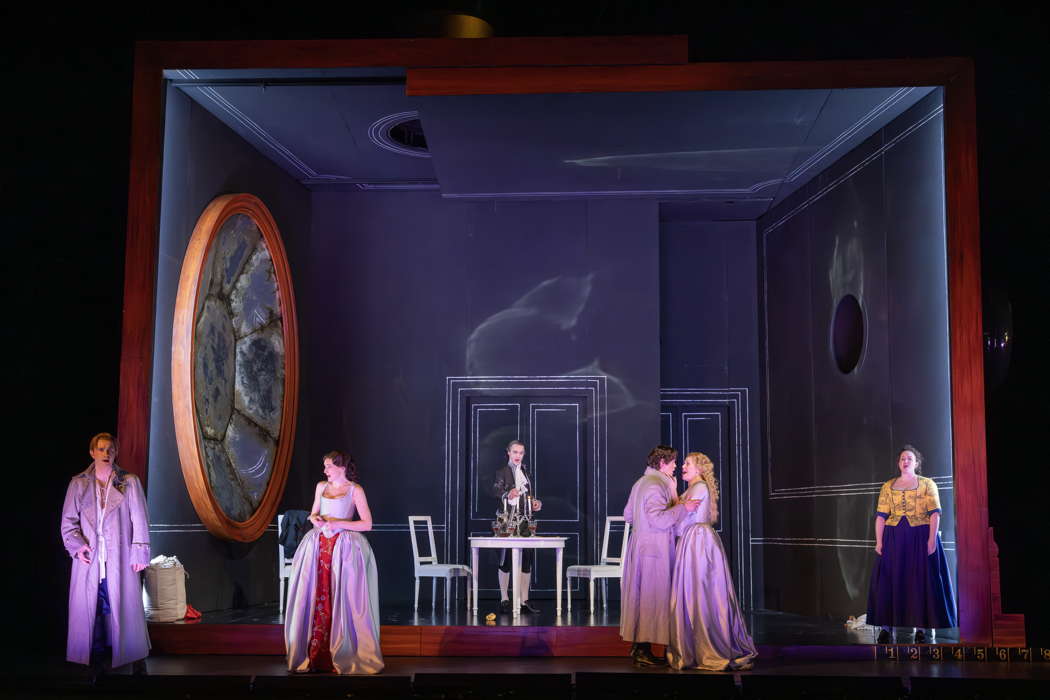
Antony Gregory as Ferrando, Heather Lowe as Dorabella, Quirijn de Lang as Don Alfonso, Henry Neill as Guglielmo, Alexandra Lowe as Fiordiligi and Gillene Butterfield as Despina in Tim Albery's production for Opera North of Mozart's Così fan tutte. Photo © 2024 James Glossop
Quirijn de Lang gives Alfonso an aptly smug air, as he signals the start of the overture, and surveys the orchestra and the audience.
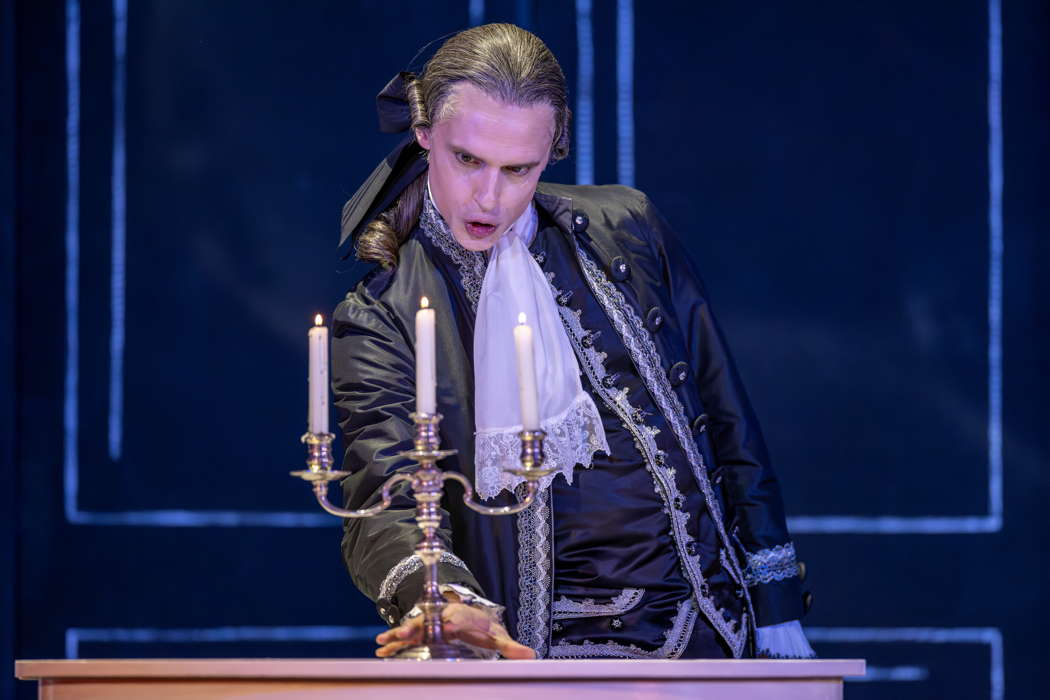
Quirijn de Lang as Don Alfonso in Tim Albery's production for Opera North of Mozart's Così fan tutte. Photo © 2024 James Glossop
Ferrando and Guglielmo seethe with anger at the self-assured Alfonso's suggestion that their girlfriends are as capable of being fickle as anyone else, and gleefully accept his invitation to test this out, betting on the outcome.
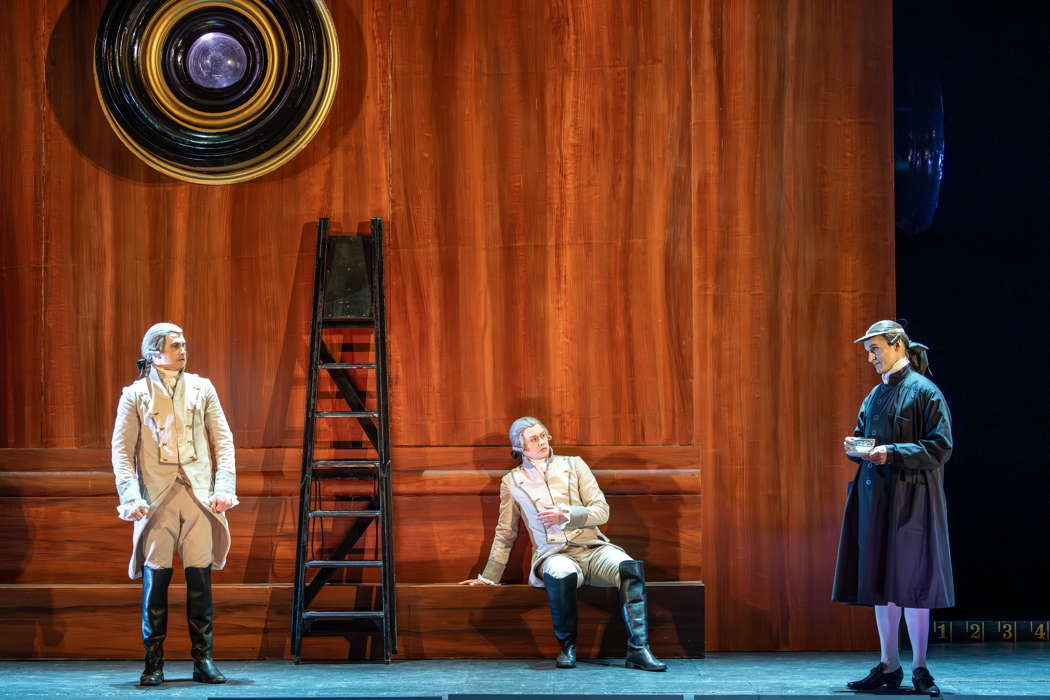
Anthony Gregory as Ferrando, Henry Neill as Guglielmo and Quirijn de Lang as Don Alfonso in Tim Albery's production for Opera North of Mozart's Così fan tutte. Photo © 2024 James Glossop
The front wall of the observation chamber lifts to reveal Fiordiligi and Dorabella, just as certain that the men won't deceive them.
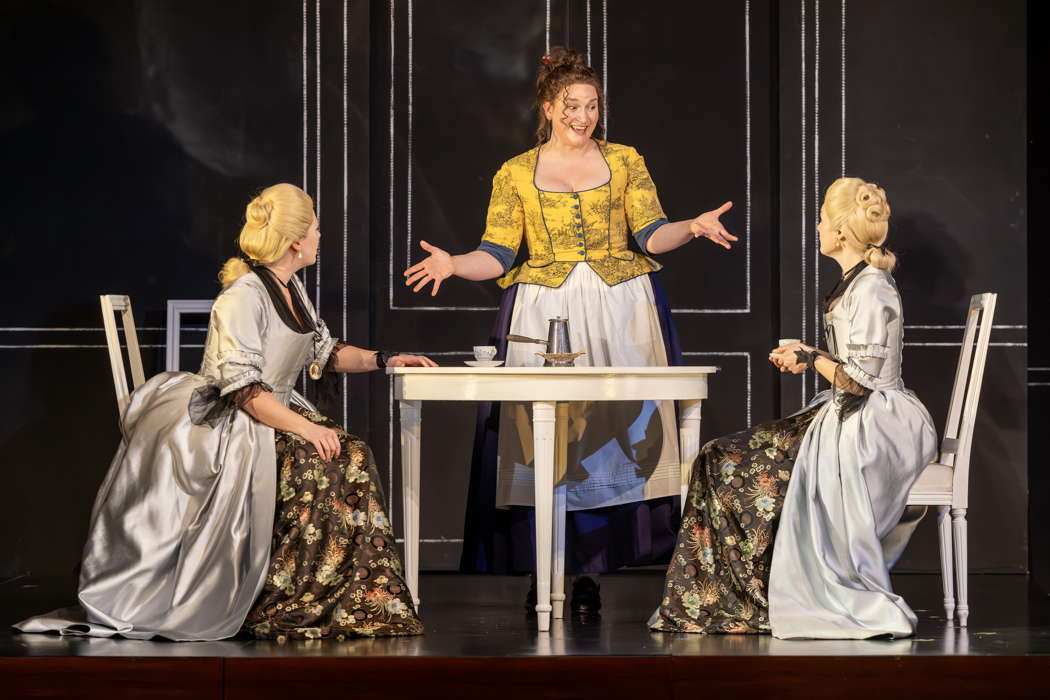
Alexandra Lowe as Fiordiligi, Gillene Butterfield as Despina and Heather Lowe as Dorabella in Tim Albery's production for Opera North of Mozart's Così fan tutte. Photo © 2024 James Glossop
Then their world turns upside-down as their lovers, apparently called away to fight in the army, come to say goodbye, with subtle but clear suggestions of an underlying panic which will finally surface as the bluff is called at the end of Act II. The trio, as the girls, and, apparently, Don Alfonso, pray for a smooth voyage as the officers sail away, is genuinely moving - by this point, there can be no doubt as to where Mozart's sympathies lay. Quirijn de Lang brings real anger to his short aria afterwards, clearly hinting that Alfonso himself was deeply hurt in the past. When the officers return in disguse to woo each other's sweetheart, the situation unravels in a way that highlights both its essential artificiality and the serious emotional turmoil underneath.
The two pairs of lovers are subtly but clearly differentiated. Siân Griffiths' slightly darker voice suggests that Dorabella is not just the older of the two, but also slightly less starry-eyed than Alexandra Lowe's brighter-toned Fiordiligi. Griffiths - standing in for an indisposed Heather Lowe - brings determination to her refusal to be consoled, in 'Smanie implacabili', parallelling Lowe's defiance as Fiordiligi compares herself to an immoveable rock in 'Come scoglio'.
Similarly, Henry Neill's darker vocal colour, compared with Anthony Gregory's airy Ferrando, underpins his increasing disillusion as Act II proceeds. Gregory is highly persuasive in 'Un aura amorosa'. (Is he only play-acting? The levels of ambiguity in operation are what gives the opera its puzzling fascination.) Neill and Griffiths play their Act II duet, 'Il core vi dono', straight, suggesting Guglielmo on the verge of giving way, as well as Dorabella, whose playful side is given free rein by Griffiths in 'L'amor'e un ladroncello'. And it's worth noting the sisters' dresses becoming gradually less formal through Act II.
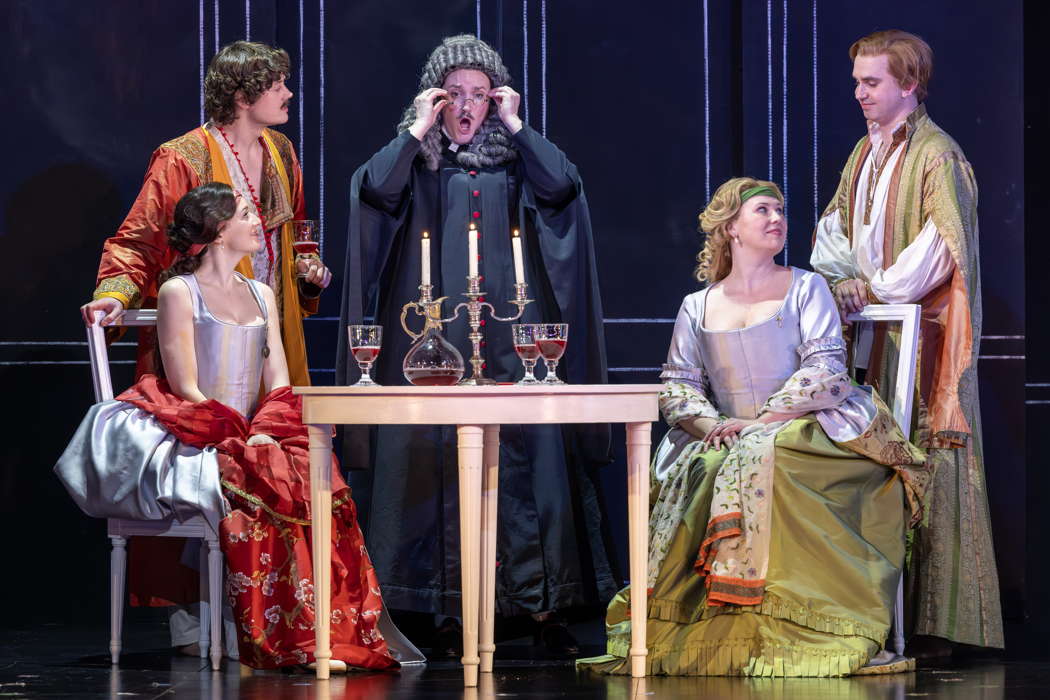
Henry Neill as Guglielmo, Heather Lowe as Dorabella, Gillene Butterfield as Despina, Alexandra Lowe as Fiordiligi and Anthony Gregory as Ferrando in Tim Albery's production for Opera North of Mozart's Così fan tutte.
Photo © 2024 James Glossop
Gillene Butterfield's no-nonsense maid Despina is not afraid of giving the sisters a good talking-to, and throws herself gleefully into her disguised appearances as the doctor and notary in the respective Act I and II final scenes.
Conductor Clemens Schuldt guides the performance with a flair for Mozart's pacing, textures and sonorities - the beguiling muted violins in 'Soave sia il vento', for instance - with Oliver Rundell's fortepiano continuo adding its own delectable tang. The Opera North Orchestra responds tenderly and vigorously as required, and the Chorus, though offstage throughout, makes spirited contributions. The English translation is uncredited, although one as good as this does not need to be anonymous.
The question of whether the lovers revert to their original pairings or stay with their new partners is met head-on and neatly side-stepped at the same time. The final ensemble is no 'been-through-the-experience-and-come-out-the-other-side' happy ending.
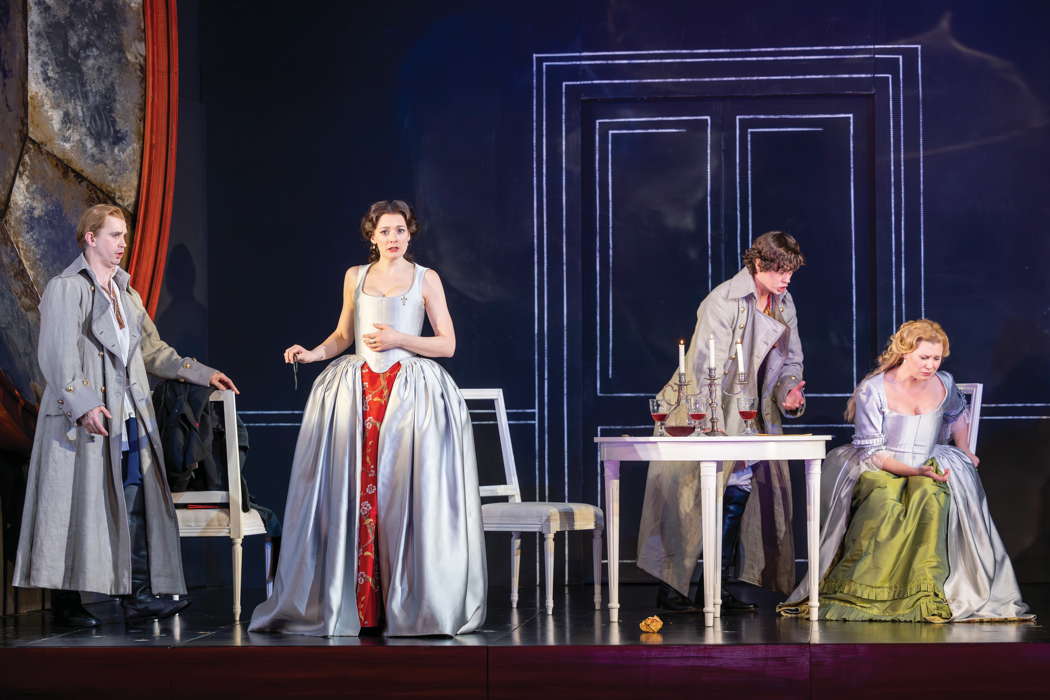
Anthony Gregory as Ferrando, Heather Lowe as Dorabella, Henry Neill as Guglielmo and Alexandra Lowe as Fiordiligi in Tim Albery's production for Opera North of Mozart's Così fan tutte. Photo © 2024 James Glossop
Judging by the looks on everyone's faces, the sisters, at least, are fervently hoping never to set eyes on the others again. It works brilliantly.
Copyright © 20 March 2024
Mike Wheeler,
Derby UK





